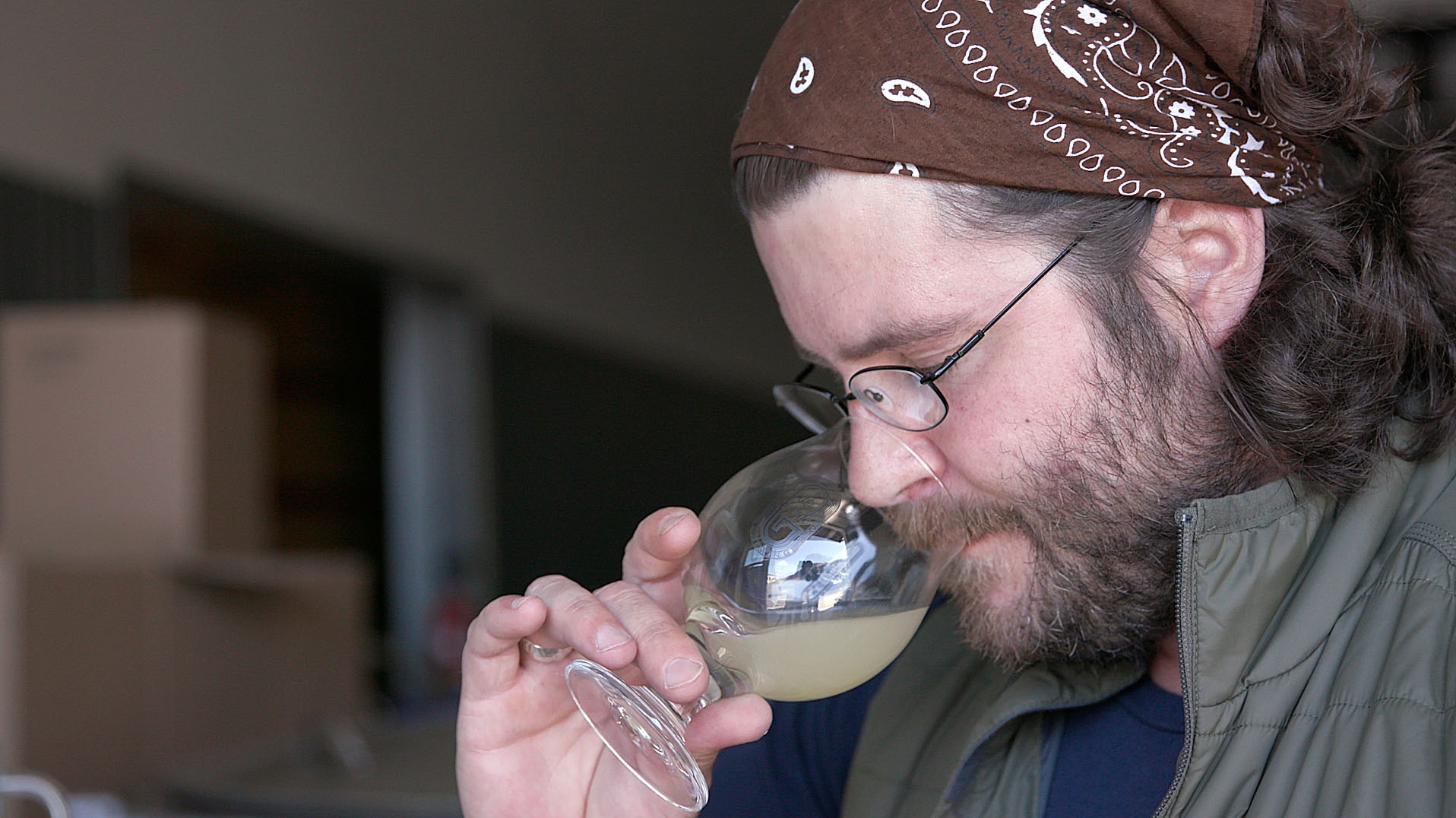The magic of the northern Oregon Coast is more accessible to visitors than ever.
From a tiny town on Tillamook Bay comes a beer that literally changes flavor with the wind pattern; salt that’s exported to world-class restaurants; wasabi that accounts for part of the world’s 1% of “real” wasabi. Before, these products were known to locals or those lucky enough to find them. That changed April 14, when visitors were given a new way to experience the flavors and magic of life on the northern Oregon Coast.
The North Coast Food Trail is a culinary travel map that highlights 60 destinations in a 100-mile span, from Lincoln City to Cannon Beach. Available in print and online, the map showcases the region’s growers, craftspeople and producers. Beyond enjoying one of the country’s top food destinations, visitors can immerse in the local lifestyle and meet the people behind the growing process.
“We buy to each other, we sell to each other, we frequent each other,” says Jeff Wong, a Garibaldi fisherman and early proponent of the Trail. “We’re all interconnected, and the Trail recognizes that. For a tourist, it’s a completely elevated experience.”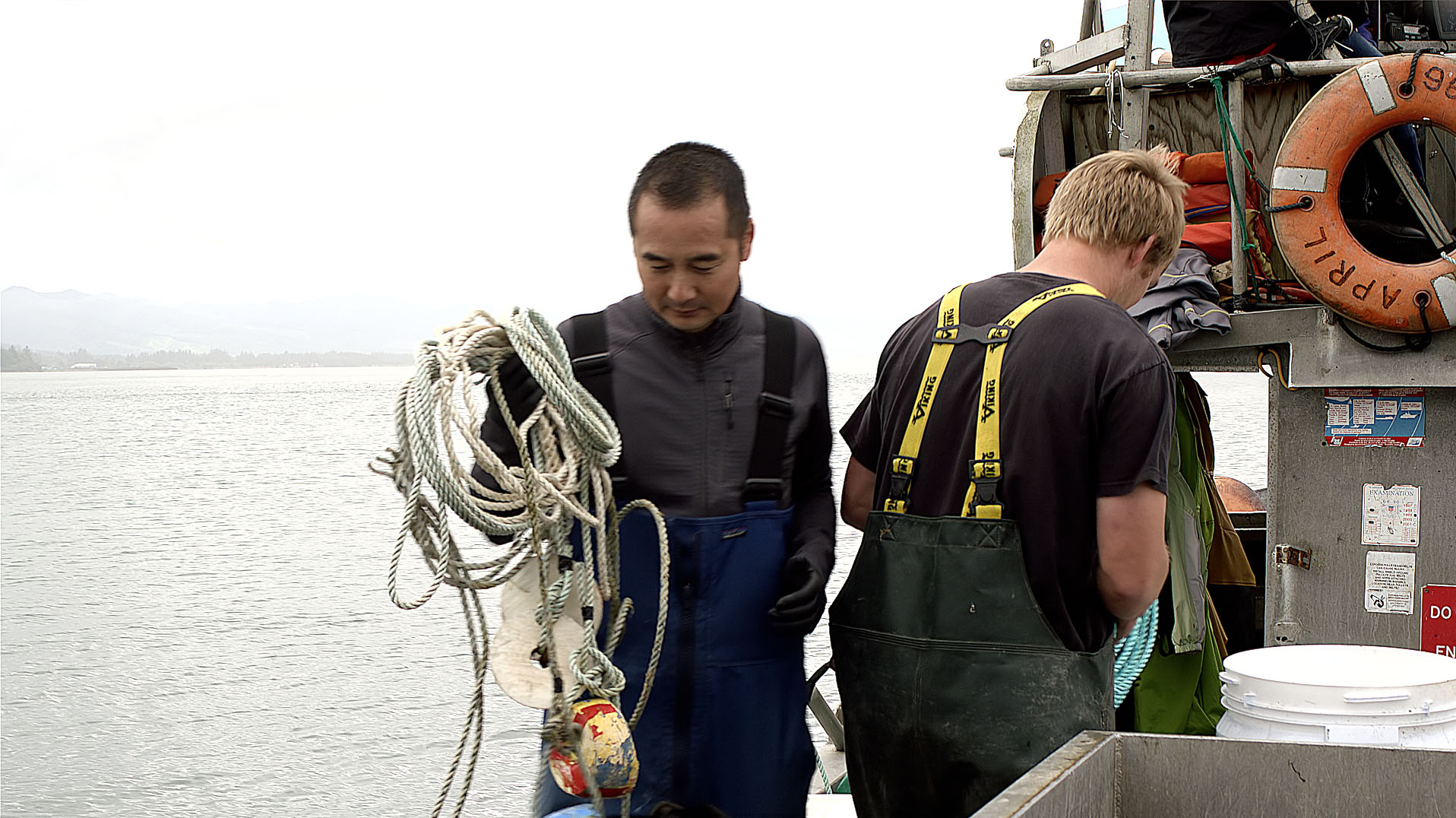 Jeff Wong leads the region’s Community Supported Fishery.
Jeff Wong leads the region’s Community Supported Fishery.
Over a year ago, Visit Tillamook Coast gathered farmers, fishers, brewers, cheesemakers, and other producers in a two-day workshop to discuss ways of promoting the community. By the workshop’s end, the group voted to start a Trail: a way to both showcase all the local producers and provide a more visceral experience for visitors. “The group thought was basically: ‘We’ve been waiting for something like this,” says Nan Devlin, Director of Tourism for Visit Tillamook Coast. “We were hoping for 40 participants (for the Trail), and now have over 60.”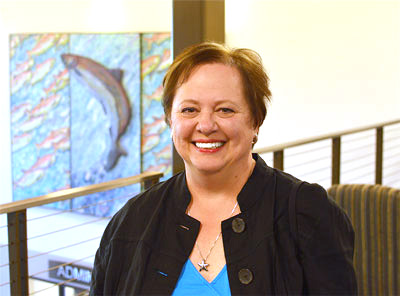 Nan Devlin, Tillamook Coast Director of Tourism
Nan Devlin, Tillamook Coast Director of Tourism
Beyond visiting farms and restaurants, the trail-goers can partake in many immersive activities: go clamming on kayak trips, forage mushrooms in the Tillamook State Forest, farm oysters in Netarts Bay, enjoy farm-to-table events, and eat dinner along a scenic railway ride.
“Visiting this area can be transformational,” Devlin continues. “The people have great pride in the work they do—with the land and the sea. We want to showcase the way of life out here.”
Captain Mark Lytle knows of one such lifestyle. His company, Pacific City Fishing, leads dory fishing trips, a tradition local to Pacific City that dates back over one hundred years.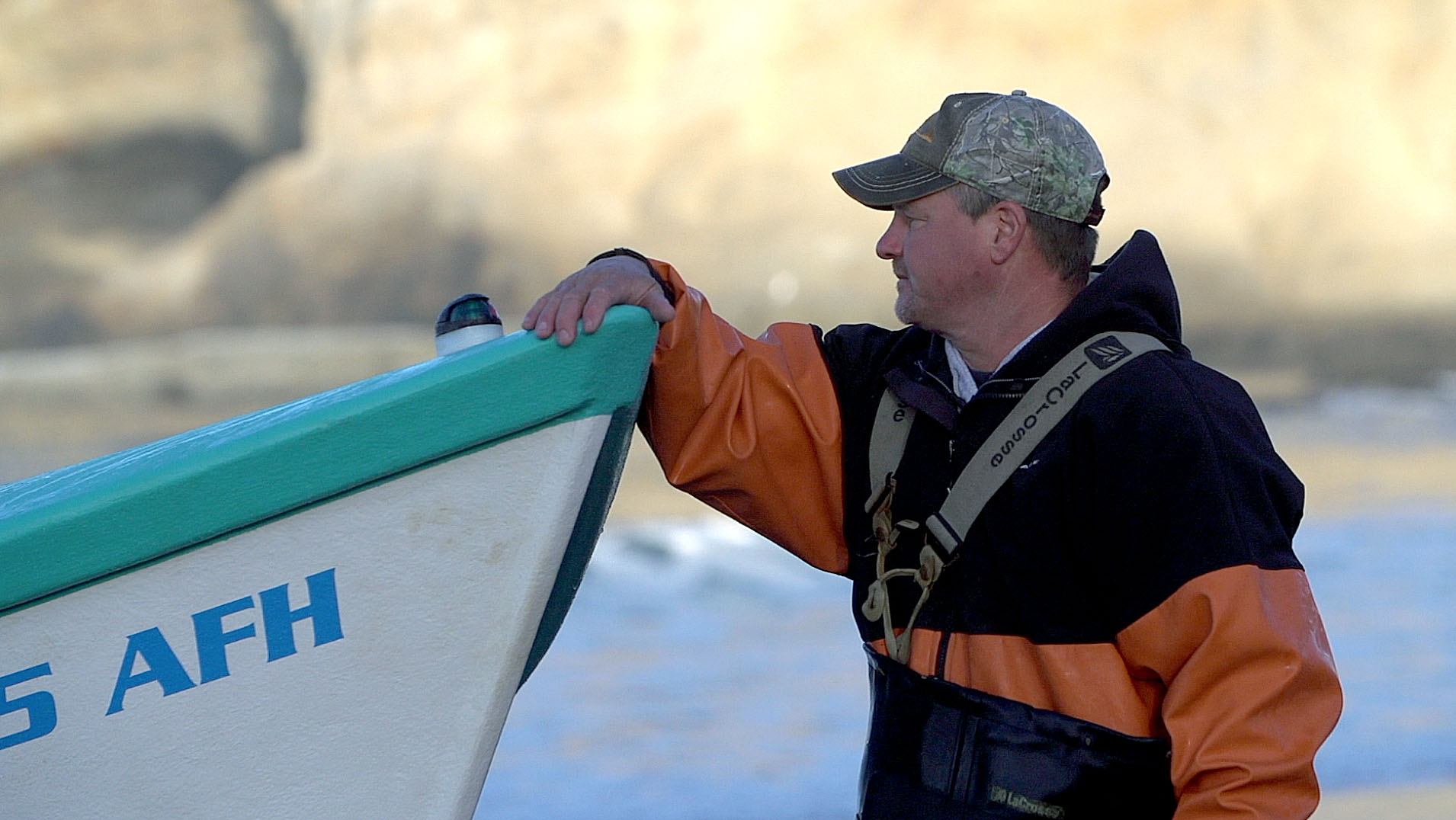 Captain Mark Lytle launches his dory boat from the beach, catching a wave that will take it out to sea.
Captain Mark Lytle launches his dory boat from the beach, catching a wave that will take it out to sea.
Dory boats are built to take off directly from the beach. A pick-up truck drops it off in the surf; then, Lytle stands waist deep in the water and waits for the perfect break in waves. At the right moment, he pushes past the swell and propels into the expansive waters of Cape Kiwanda.
Once past the break, it’s paradise. A thriving and well-protected coral reef hosts an array of exotic species. Customers are almost guaranteed a catch. “Every time you reel your line in, you have no idea what you’re going to bring in,” says Lytle. Octopus, manta rays, wolf eels, dog fish, even sharks have come up. “It’s a complete mystery.”
Lytle is especially conscientious of what he keeps and tosses. He is careful to preserve the fish supply, a mindset shared by all the area’s fishermen. “Commercial or sport fishermen, there’s no competition here,” he says. “There’s plenty of fish for everyone, so long as we don’t take more than we need.”
Contributing to this ethos is Jeff Wong, who leads Community Supported Fishery (CSF). Similar to Community Supported Agriculture, CSF is community-owned and maintains a vigorous commitment to sustainable fishing. The main priority? Get people the freshest seafood possible. “Seafood is never supposed to taste fishy,” he says. “That means it’s old.” This “fishy taste” is rare—almost unheard of—for Wong’s catch, since it’s often caught and served that same day. “I can get it from the sea to your plate in an hour,” he says.
To guarantee freshness, Wong sells to restaurants under one condition: they cannot have a pre-scripted menu. “Next level chefs”, he calls them—those with an ability to create extraordinary dishes in just a moment’s notice, based off that day’s catch. Amongst some of CSF’s many customers are Offshore Grill, Salmonberry Saloon, and Schooner Restaurant. Wong also delivers directly to consumers, and allows some to buy right off his boat (available by inquiring through his website).
Beyond fish, the region is home to some of the best farming and produce in the world. One famous example is Jacobsen Salt, now an international brand. In 2012, Ben Jacobsen tested 25 bodies of water along the West Coast in search of the best quality salt. Once he found Netarts Bay, the decision was set: without any rivers running into it, and with oyster farms that naturally filter the water, the Bay holds some of the freshest salt water along the Coast. Jacobsen Salt is one of several Tillamook-based products now sold all over the world—others being Tillamook Cheese and Oregon Coast Wasabi.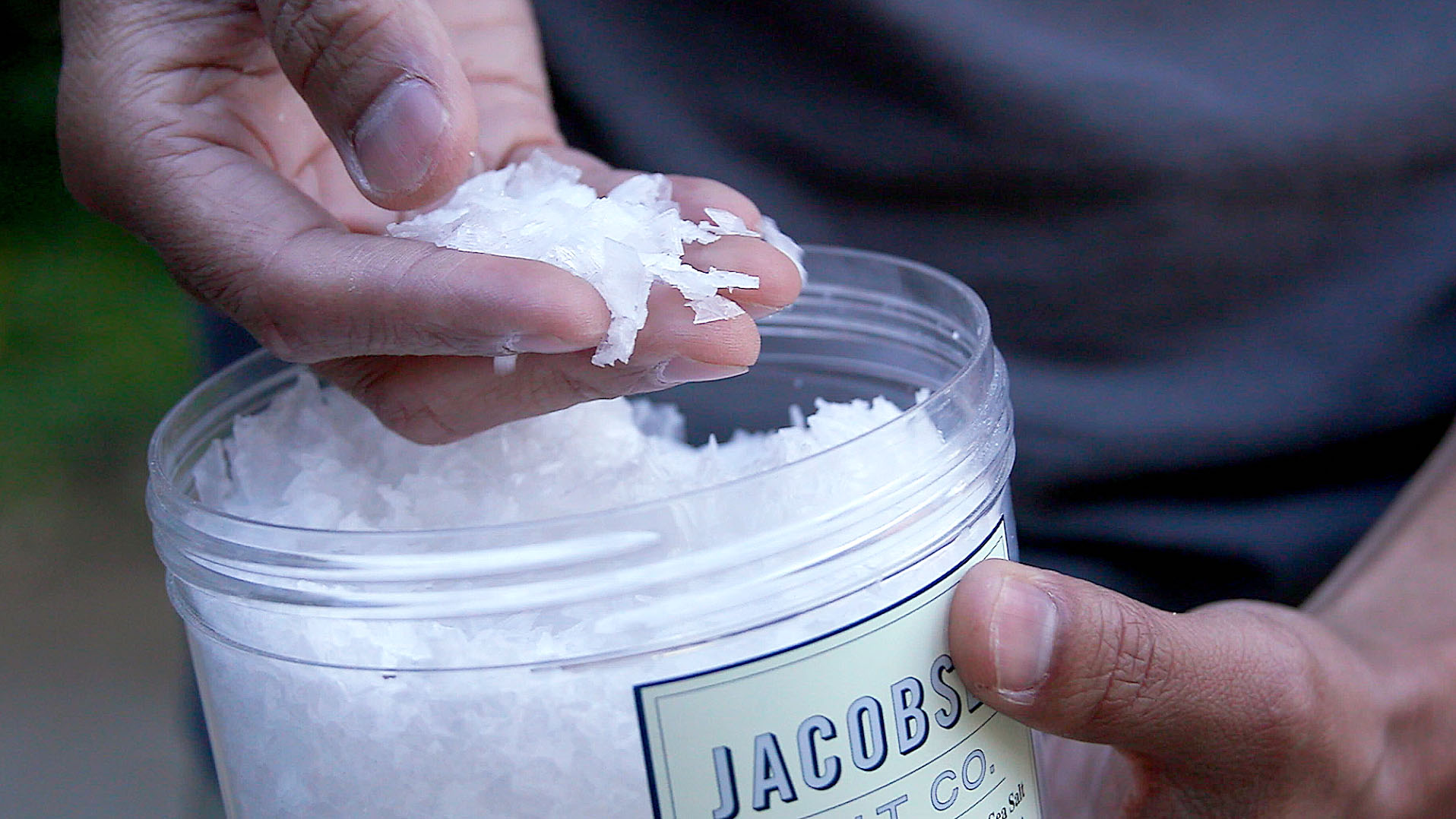 Jacobsen Salt is uniquely tied to the coastal environment in which it is produced.
Jacobsen Salt is uniquely tied to the coastal environment in which it is produced.
Scientifically speaking, the region is the perfect place for agriculture (“a producer’s paradise”, says Wong). Since the land is furthest west in the U.S., the Coast’s soil is the last place clay is deposited. Clay-based oils lock nutrients into the soil, which creates organic content matter significantly more concentrated than average. The temperate climate allows produce to grow past the typical season, and also provides an ideal environment for livestock and other animals.
With such fertile land, it’s been miraculously well-preserved. This speaks to the communal effort—helping each other and never growing more than what’s needed. Growers see the land not as a resource to be profited upon, but as the means to sustain their families and future generations. The artisans have a deep respect not only for each others craft, but for the longevity of the community.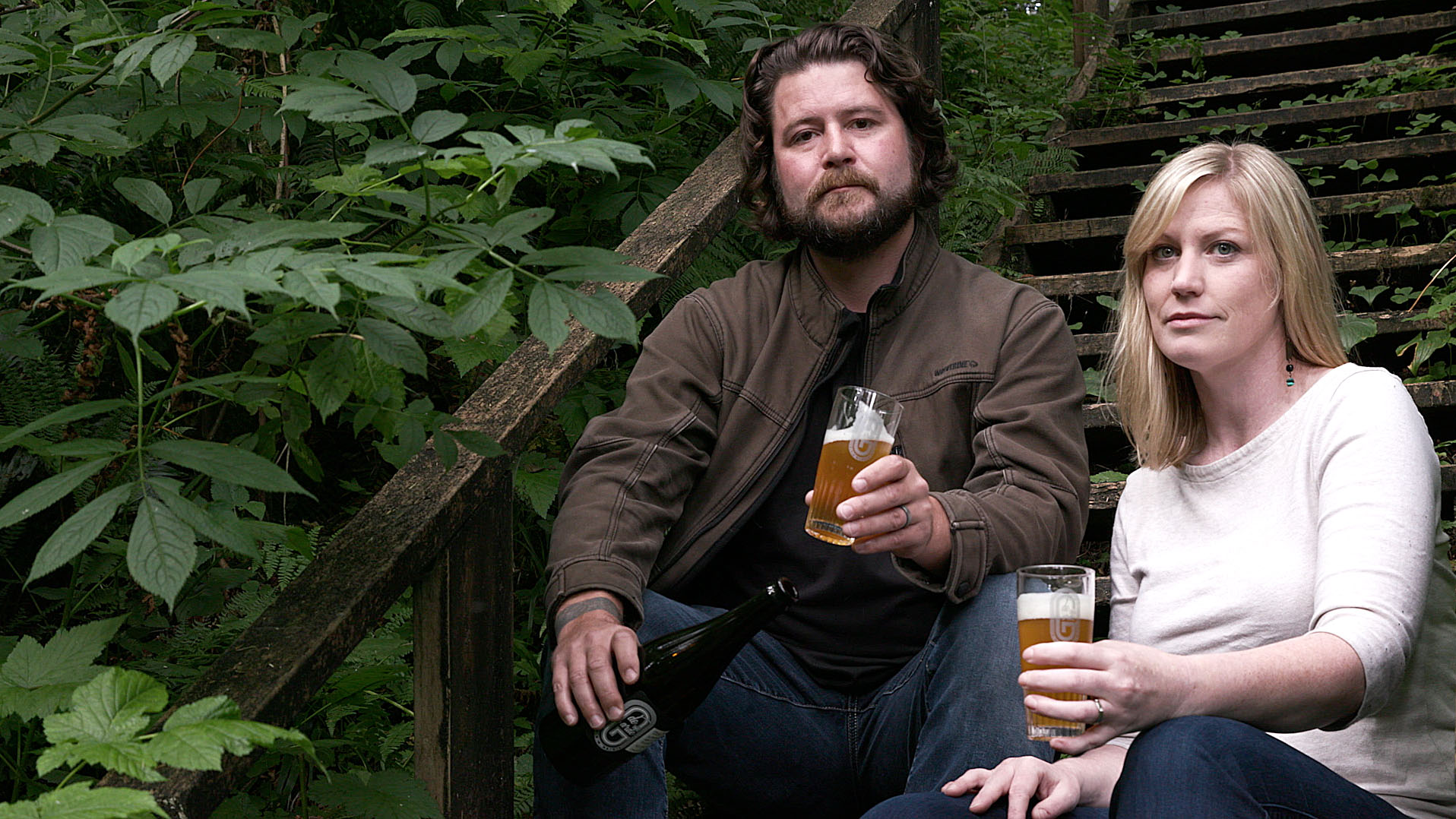 Trevor Rogers, head brewmaster, and Linsey Hamacher, owner of deGarde Brewing, specialize in wild fermentation beer.
Trevor Rogers, head brewmaster, and Linsey Hamacher, owner of deGarde Brewing, specialize in wild fermentation beer.
The North Coast Food Trail’s participants are hopeful not only the region thrives economically, but that visitors are impacted by the natural beauty and communal mindset. By supporting the North Coast Food Trail, visitors contribute to conserving and protecting one of the country’s most bountiful regions.
“Stewardship is our job,” says Mark Lytle. “That’s my job, it’s our job, it’s everyone’s job. We’re fortunate to have what we have, and it’s everyone’s job to treat it well.” “Whether on the sea, in the forest, or on the farm, we’re all in it together.”
Learn More! Print a copy or access the digital version of the North Coast Food Trail via its website: www.northcoastfood: trail.com.
Brand stories are paid content articles that allow Oregon Business advertisers to share news about their organizations and engage with readers on business and public policy issues. The stories are produced in house by the Oregon Business marketing department. For more information, contact associate publisher Courtney Kutzman.


